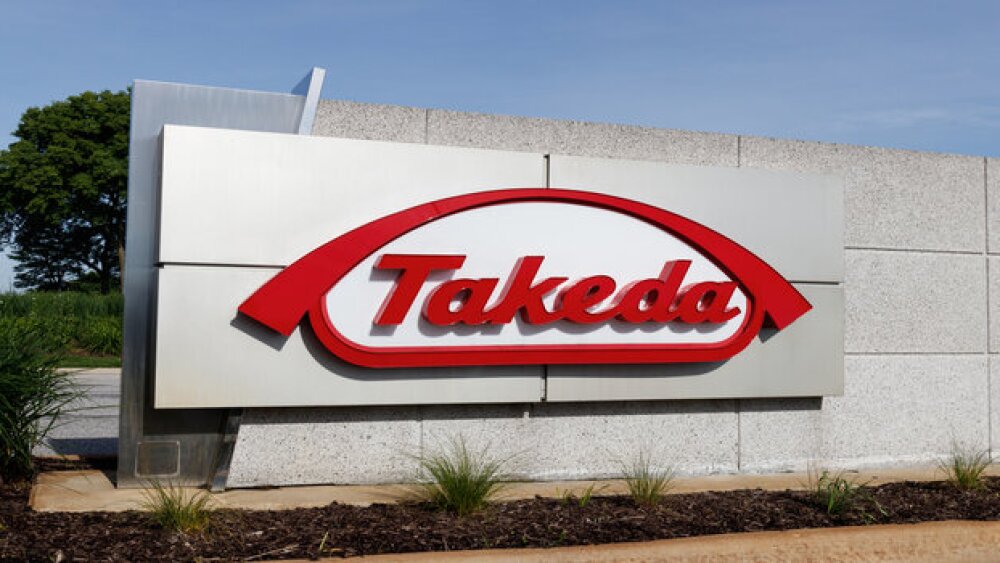SAN MATEO, Calif., Dec. 18 /PRNewswire/ -- Anthera Pharmaceuticals, Inc., a privately held biopharmaceutical company developing anti-inflammatory drugs, announced today that the U.S. Food and Drug Administration (FDA) Office of Orphan Product Development has granted A-001 orphan drug status for the prevention of acute chest syndrome in patients with sickle cell disease.
A-001 is currently being evaluated for acute chest syndrome in a Phase II clinical trial in the United States called IMPACTS (Investigation of the Modulation of Phospholipase in Acute ChesT Syndrome). In addition to orphan drug designation, the FDA has granted Anthera expanded enrollment of the IMPACTS trial to patients as young as five years of age.
"The orphan drug designation signifies an important milestone for Anthera in the development of A-001," stated James E. Pennington, M.D., Executive Vice President and Chief Medical Officer at Anthera Pharmaceuticals, Inc. "Orphan drug designation, in addition to our recent fast track designation from the FDA, further strengthens our development program and allows us to accelerate our efforts to develop a new treatment for this devastating condition, for which there is no cure."
About Acute Chest Syndrome
Acute Chest Syndrome (ACS) primarily affects children suffering from sickle cell disease. It is believed that the incidence of sickle cell disease is highest in children two to four years of age decreasing gradually to its lowest value in adults. Patients five to eleven are also a large part of the population who could benefit from a new therapy. ACS is also believed to be a contributor to pulmonary function abnormalities, pulmonary hypertension, and long-term mortality.
About the IMPACTS trial
The IMPACTS trial began recruiting patients in January 2007 and is a double-blind, randomized, parallel group, placebo-controlled dose escalation study aimed at preventing a severe respiratory complication of sickle cell disease, acute chest syndrome. Acute chest syndrome is a form of acute lung injury and is the leading cause of death in sickle cell disease patients. It commonly follows admission to the hospital for other reasons, especially an episode of bone pain (a prominent feature of sickle cell disease). Recent academic clinical studies have demonstrated that serum secretory phospholipase A2 (sPLA2) levels rise in advance of acute chest syndrome, and therefore help identify patients at-risk. This creates a unique opportunity for early intervention for a serious inflammatory lung disease with a potent inhibitor of sPLA2 such as A-001. Worldwide, nearly 200,000 suffer from some form of sickle cell disease. It accounts for an estimated 60,000 hospitalizations per year and significantly reduces life expectancy.
"Current treatment options are limited for even the common complications of sickle cell disease. As such, discovery of sPLA2 as a potential therapeutic target for patients at risk for acute chest syndrome has opened new prevention and treatment opportunities," says Clark Brown, M.D., Ph.D., IMPACTS investigator at Emory University, and a physician at the Aflac Cancer Center and Blood Disorders Service of Children's Healthcare of Atlanta. "The IMPACTS study represents a promising step forward in the care of patients with sickle cell disease."
Further information about this clinical trial, sickle cell disease, and acute chest syndrome can be found at http://www.IMPACTStrial.com
About Orphan Drug Designation
Orphan Drug designation grants special status to promising new therapies that treat conditions affecting fewer than 200,000 patients in the United States and entitles seven years of market exclusivity. Additionally, the sponsor of the product is offered incentives which include eligibility for research grants, certain tax benefits, protocol assistance and possible exemptions or reductions of certain regulatory fees during development or at a time of market approval.
About Anthera Pharmaceuticals
Anthera Pharmaceuticals is a privately-held pharmaceutical development company committed to world-class development and commercialization of promising clinical products to address the unmet medical needs of patients with life-threatening chronic and acute inflammatory diseases. In 2006, Anthera acquired worldwide rights (except Japan) to a series of clinical and pre-clinical compounds that inhibit the enzymatic activity of members of the phospholipase (PLA2) family -- a group of enzymes responsible for the release of arachidonic acid and subsequent production of leukotrienes? prostacyclins and other mediators of inflammation. These highly potent compounds inhibit novel? upstream steps in the inflammation cascade and have the potential to address a variety of diseases including: acute chest syndrome, acute lung injury, acute respiratory distress syndrome, atherosclerosis, acute coronary syndrome, chronic obstructive pulmonary disease and psoriasis. In order to efficiently commercialize this platform, Anthera has brought together a proven management team with extensive experience in licensing, clinical research, development, and commercialization of anti-inflammatory products. For more information please visit http://www.anthera.com.
pr@anthera.com
CONTACT: Anne Bowdidge of Anthera Pharmaceuticals, Inc., +1-650-218-6900,
pr@anthera.com
Web site: http://www.anthera.com/
http://www.IMPACTStrial.com/




